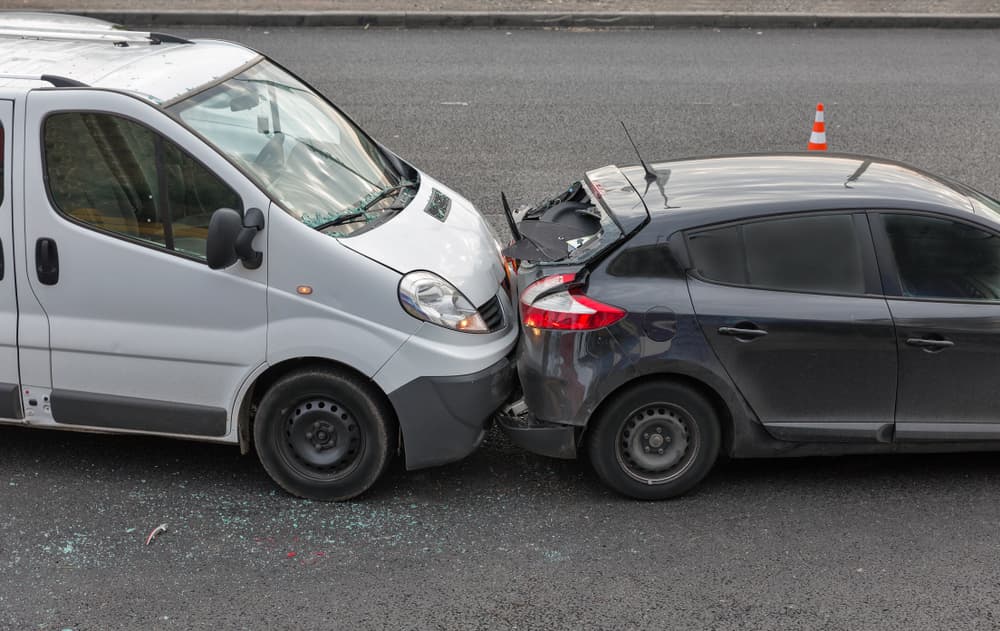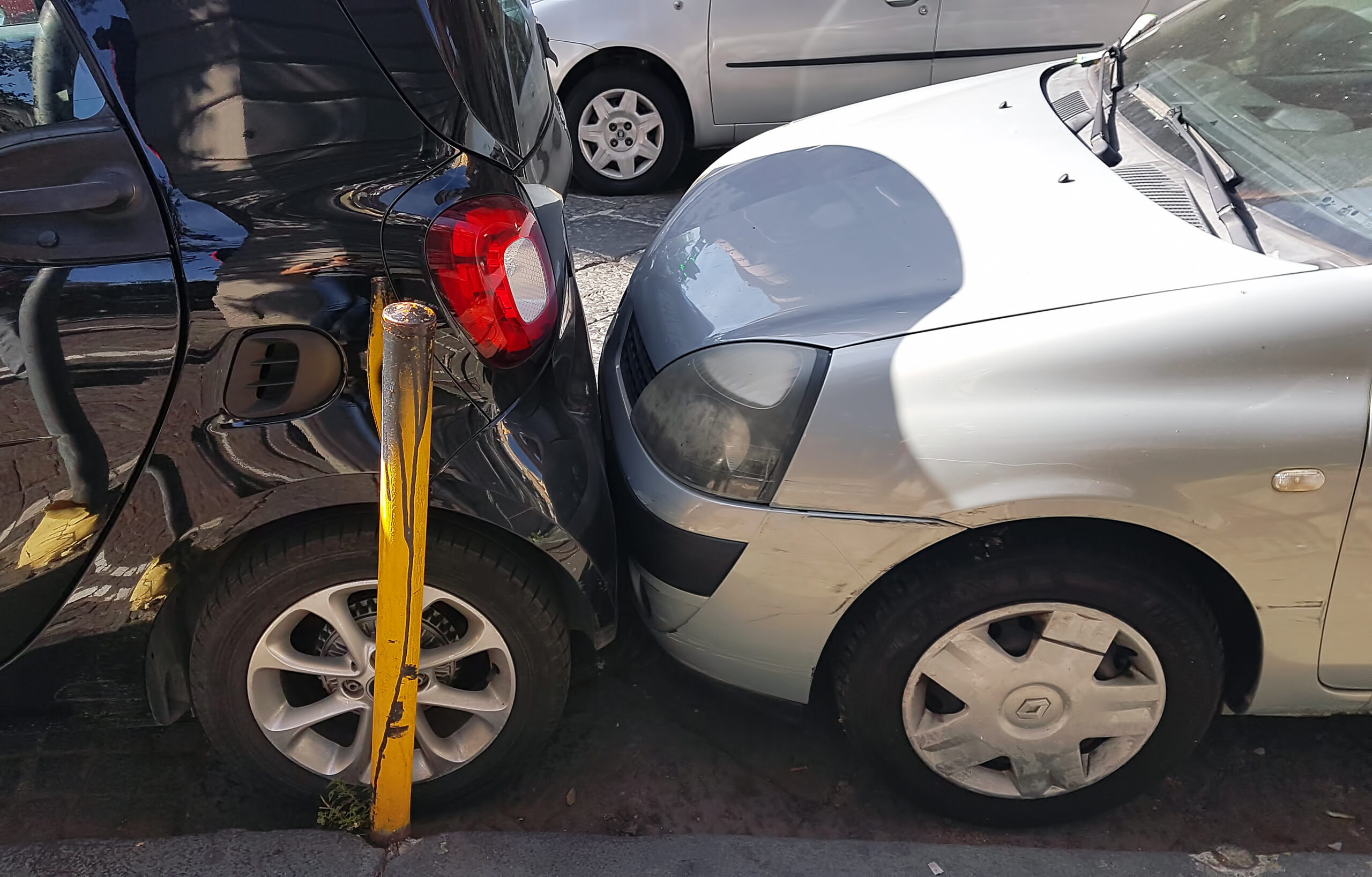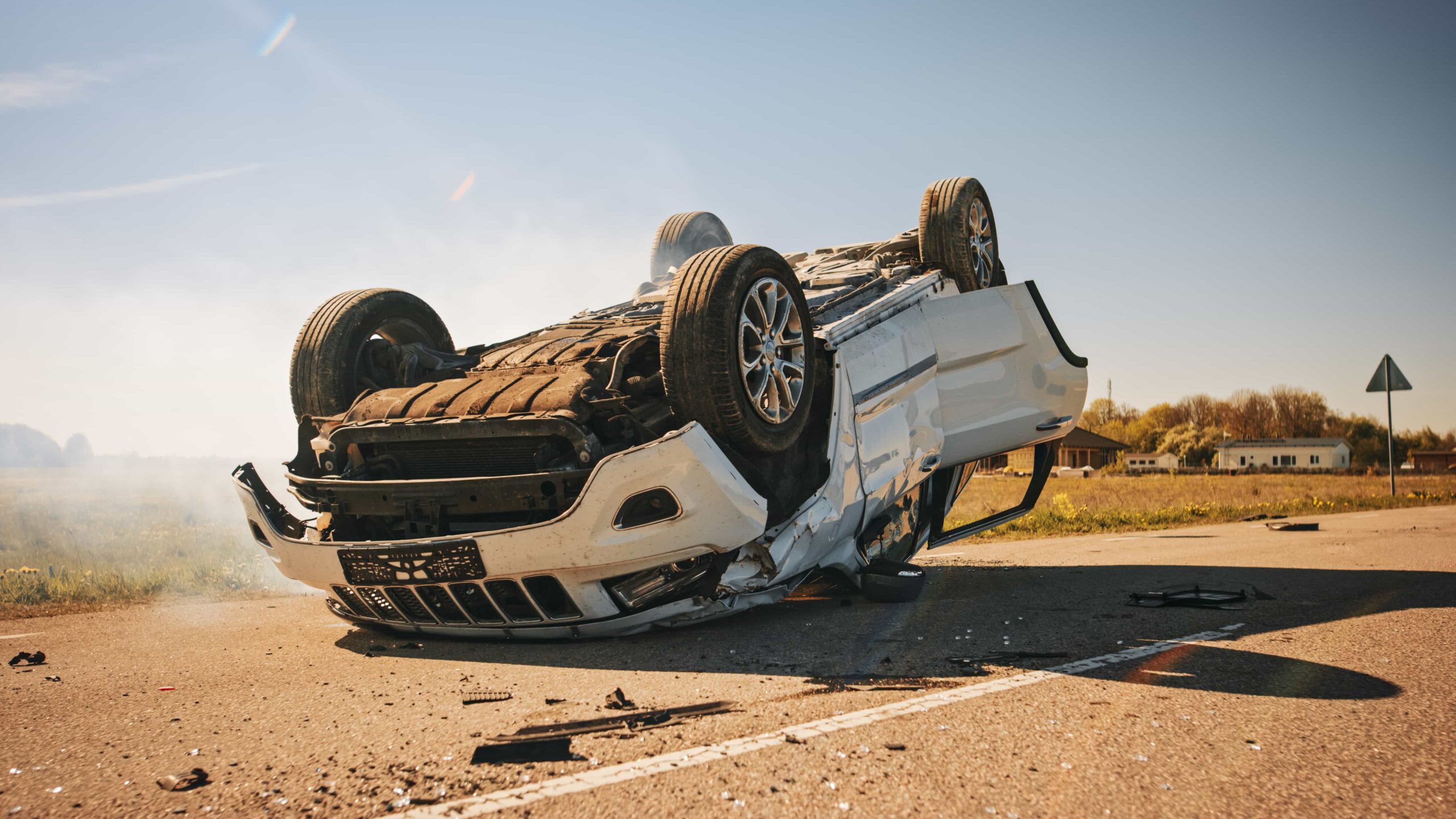When settling a car accident case in Chicago, the path to compensation is often more complex than many expect. In a city where traffic accidents happen every few minutes, you need to know what to do after a collision is essential—not just for your health but for your financial future as well.
While some may hope for a quick settlement, securing fair compensation takes time, strategy, and an understanding of Illinois’s legal landscape. In this guide, we'll break down the car accident settlement process in Chicago and share a real-life case we successfully settled.
If you’re dealing with the aftermath of a car accident in Chicago and unsure how to proceed, this article will help you make informed decisions. And remember, you don’t have to go through it alone—our firm is available 24/7 to offer the legal support you need to fight for your rights.
Call Abels & Annes today (312) 924-7575 for a free consultation.
Schedule a Free Initial Consultation Today!
Table of Contents
Understanding the Car Accident Settlement Process in Chicago
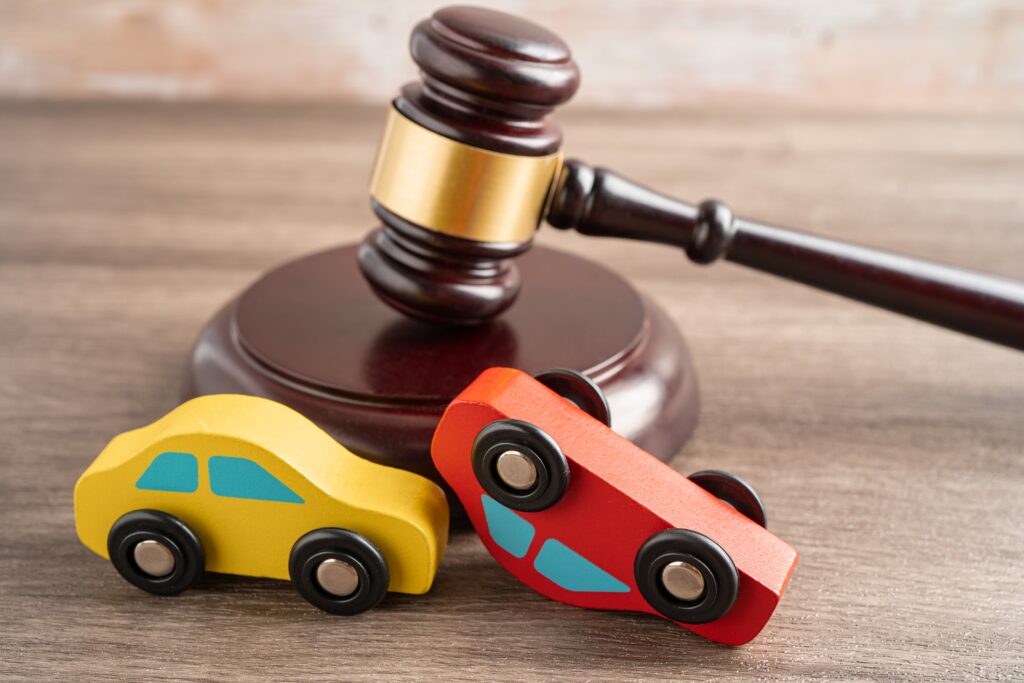
While it may seem straightforward to exchange insurance information and wait for a check, the reality is often far more complex, particularly when serious injuries or extensive vehicle damage are involved. The process ensures fairness, but it requires patience and a thorough understanding of Illinois law.
Initial Steps After the Accident
Immediately after a car accident, gather evidence and document the incident as accurately as possible. In Illinois, fault plays a significant role in determining compensation. Illinois is an at-fault state, meaning the person who caused the accident must cover damages.
This means you must secure evidence such as:
- Police reports: In many cases, Chicago law enforcement will arrive at the scene and file a report detailing the accident. This document becomes an important piece of evidence in proving liability.
- Medical records: If you were injured, medical documentation is essential not only for your health but also for proving the severity of your injuries.
- Photographs and witness statements: These help recreate the accident and can support your version of events if any party disputes liability.
Reaching Maximum Medical Improvement (MMI)
The settlement process typically doesn’t begin until you reach what is known as Maximum Medical Improvement (MMI). This is where your doctor determines that your condition has improved as much as it will through medical treatment.
Whether you fully recover or will face long-term issues, reaching MMI allows your attorney to assess the full scope of your medical expenses, lost wages, and future care needs.
In Chicago, waiting for MMI before pursuing a settlement is strategic. Illinois law (735 ILCS 5/13-202) provides a statute of limitations of two years for personal injury cases, meaning you have two years from the accident date to file a lawsuit if all parties cannot settle.
However, rushing into a settlement before understanding the full extent of your injuries could leave you with a payout that doesn’t cover future medical bills or loss of earning potential.
Gathering Additional Evidence and Preparing Your Claim
Once a medical expert establishes MMI, your attorney will begin compiling a demand package for the insurance company.
This includes:
- Police and accident reports
- Medical bills and treatment history
- Proof of lost wages
- Expert testimony or medical opinions regarding your future treatment needs
This demand package lays out the full extent of your damages.
The Demand Letter and Negotiation Process
Once the demand package is ready, your attorney will send it to the at-fault party’s insurance company. This letter clearly states the amount of compensation sought, supported by evidence of medical expenses, property damage, and any non-economic damages like pain and suffering.
Insurance companies often respond with an initial lowball offer, which is why legal representation is so important during negotiations. Your attorney will work to ensure the final settlement accounts for both immediate and long-term costs.
If negotiations stall, you have the option to file a lawsuit. This does not mean your case will go to trial, but filing can push the insurance company to offer a more reasonable settlement to avoid court costs.
Case Study: $25,000 Settlement in a Chicago Car Collision
In this section, we’ll explore a real case our legal team handled, where a Chicago woman successfully navigated this process, resulting in a $25,000 settlement.
The Accident: A Clear Case of Negligence
A car collision occurred at the intersection of Cumberland and Bryn Mawr in Chicago. Our client, a pregnant woman, was driving southbound on Cumberland with a green light when the defendant, heading northbound, attempted to make a left turn onto Bryn Mawr.
Failing to yield the right of way, the defendant turned directly into the path of our client, causing a severe crash.
Illinois law is very clear on yielding in such situations—under the Illinois Vehicle Code (625 ILCS 5/11-902), drivers making a left turn must yield to oncoming traffic, making the defendant clearly liable for the accident.
The violent force of the impact threw our client forward and backward, causing immediate back, neck, and abdominal pain. Given that she was 31 weeks pregnant at the time, the situation was even more precarious.
Injuries and Medical Treatment
Following the collision, the ambulance rushed our client to Resurrection Medical Center. She complained of severe pain in her abdomen and back, raising concerns about her pregnancy.
Diagnostic tests confirmed that she had sustained serious musculoligamentous injuries in her cervical, thoracic, and lumbar spine, in addition to sciatic pain and head contusions.
Despite initial treatment, her symptoms persisted. Over the following months, she continued to experience headaches, neck stiffness, lower back pain radiating down her legs, and shoulder numbness.
The severity of her condition forced her to stop physical therapy temporarily due to her pregnancy, but her doctors recommended resuming therapy post-delivery to address her spinal injuries.
Building the Legal Case
Armed with a police report that confirmed the defendant’s failure to yield and a comprehensive medical history, we built a strong case.
We alleged that the defendant:
- Failed to yield the right of way
- Drove at an unsafe speed
- Neglected to keep a proper lookout
- Did not exercise due care for the safety of others
Under Illinois’ fault-based system, it was clear the defendant was negligent. In personal injury law, proving negligence requires demonstrating four elements: duty of care, breach of duty, causation, and damages. In this case, the defendant breached his duty by failing to yield, directly causing our client’s injuries.
Reaching the Settlement
Negotiations with the defendant’s insurance company centered on our client’s medical expenses, lost wages, and pain and suffering.
After persistent back-and-forth, the case settled for the defendant’s insurance policy limits of $25,000. This amount helped cover the client’s immediate and future medical needs, providing financial relief during a physically and emotionally taxing time.
What This Case Teaches Us
This settlement highlights the importance of securing timely medical treatment, collecting strong evidence, and understanding Illinois’s traffic laws.
The client’s quick response, from seeking medical care to consulting with an attorney, ensured that we could properly document her injuries and damages. In turn, this made the negotiation process smoother, leading to a favorable outcome without the need for a drawn-out trial.
Schedule a Free Initial Consultation Today!
Factors Influencing Car Accident Settlements in Chicago
Several factors come into play when determining how much a car accident settlement will be. While the process may seem straightforward — submit a car accident claim and wait for a check — the actual valuation of a case involves a range of considerations, from medical expenses to long-term impacts.
Severity of Injuries
The severity of your injuries is one of the most important elements that will influence the settlement amount. Generally, the more severe your injuries, the higher the compensation.
This includes not only immediate medical costs but also future treatment, rehabilitation, and any permanent disability that may result from the accident. Illinois law allows victims to seek compensation for both past and future medical expenses (735 ILCS 5/2-1116).
Thus, you need thorough medical documentation outlining your current condition and any ongoing care you may need.
For example:
- Immediate medical costs: Doctor visits, hospital stays, surgeries, and medications.
- Future medical expenses: Long-term rehabilitation, physical therapy, or even surgeries required later due to accident-related injuries.
- Lost wages: Compensation for income lost during recovery and diminished earning capacity if your injuries prevent you from returning to your previous job.
Non-Economic Damages: Pain and Suffering
In addition to medical expenses, Illinois law allows for compensation for non-economic damages, which include pain and suffering, emotional distress, and loss of enjoyment of life. Unlike economic damages, non-economic damages are more subjective and harder to quantify.
Typically, attorneys will use a multiplier based on the severity of the injuries and the impact they have had on your life.
Pain and suffering encompass:
- Physical pain endured during recovery.
- Emotional trauma, including anxiety or depression caused by the accident.
- Loss of enjoyment in daily activities, such as hobbies, family time, or exercise.
Fault and Contributory Negligence
Illinois follows a modified comparative negligence rule, which can impact the settlement significantly. Under this rule (735 ILCS 5/2-1116), if you are partially at fault for the accident, your settlement amount will decrease by your percentage of fault. If you are more than 50% at fault, you may not recover any compensation at all.
Insurance Policy Limits
Another factor that can influence your settlement is the at-fault driver’s insurance policy limits. In Illinois, the minimum liability coverage is $25,000 for bodily injury per person, $50,000 for bodily injury per accident, and $20,000 for property damage (625 ILCS 5/7-203).
In some cases, as seen in the $25,000 settlement case, the insurance company may offer the policy limits if the damages are severe enough to warrant it.
Negotiation and Legal Representation
Finally, the negotiation process itself can affect your settlement. Insurance companies often start with low offers, and negotiating for a fair settlement can take time.
Having an attorney on your side ensures that the insurance company does not pressure you into accepting less than what you deserve. If the negotiations fail, filing a lawsuit may be the next step. The willingness to pursue litigation can often push the insurance company to increase its offer to avoid the costs of a trial.
Should You Settle or Go to Trial?
Deciding whether to settle or take your car accident case to trial can be a pivotal moment. Most cases settle before trial, often because it saves time, money, and uncertainty. However, you may need to go to trial.
Benefits of Settling
- Quicker Resolution: Settling avoids the long timeline of court proceedings, which can take months or even years.
- Cost-Effective: Litigation can be expensive, with court fees and expert witness costs. Settling eliminates these additional expenses.
- Certainty: A settlement guarantees a payout, whereas a trial's outcome is uncertain, even with a strong case.
When to Consider Trial
If the insurance company offers a settlement that doesn’t fully cover your damages—especially future medical costs or non-economic damages like pain and suffering—you may need to go to trial. Additionally, if they dispute liability, you may need to go to court to ensure a fair outcome.
Ultimately, the decision to settle or go to trial depends on the specifics of your case and the strength of your evidence. Your attorney will help you weigh the risks and rewards to ensure the best possible outcome for your situation.
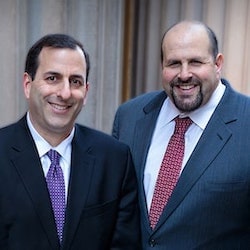
Need Clarity? We’re Here For You
If you've suffered injuries in a car accident and need guidance through this process, the attorneys at Abels & Annes, P.C. are here to help.
With 24/7 availability and a commitment to fighting for your rights, our firm is ready to assist you in getting the compensation you deserve.
Contact us today at (312) 924-7575 for your free consultation and take the first step toward resolution.
Abels & Annes, P.C.
100 N LaSalle St #1710
Chicago, IL 60602
(312) 924-7575

